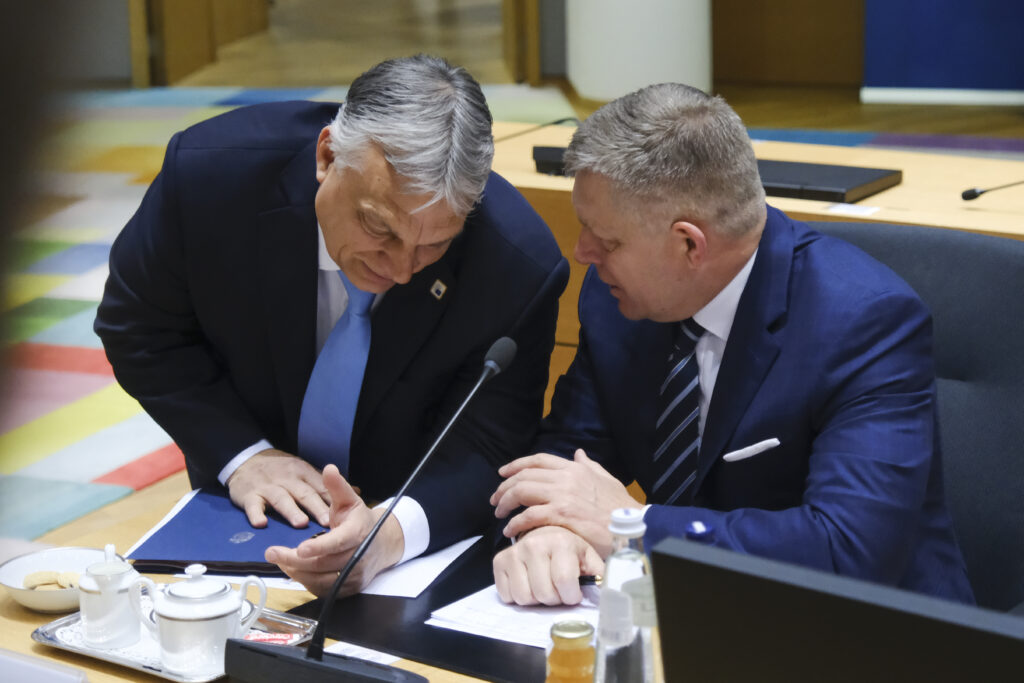Brussels – On the eve of the presentation of the plan by which Brussels intends to free itself permanently from Russian gas and oil, EU Energy Commissioner Dan Jørgensen has received a “no” from Slovakia and Hungary. In a kind of rehearsal for the debate between the capitals, the EU energy ministers meeting in Luxembourg could not agree unanimously on a document that contained a reference supporting a cut in supplies from Moscow.
.
Tomorrow, Jørgensen will present the actual legislative proposal to phase out Russian energy imports. Compared to the roadmap outlined at the beginning of May, which also envisions the cut-off of uranium supplies for European nuclear power plants, Brussels will, for now, only focus on gas. “That will also come,” the commissioner promised, while admitting that “the nuclear issue is, of course, complicated, because we have to make sure that we do not put countries in a situation where they do not have security of supply.”
 EU Commissioner for Energy, Dan Jørgensen
EU Commissioner for Energy, Dan Jørgensen
In essence, the European Commission will propose to ban imports of Russian gas under new contracts and existing spot contracts by 2025, and imports under existing long-term contracts by 2027. In other words, new contracts with Russian gas suppliers (pipelines and LNG) will be prevented, and existing spot contracts will be suspended by the end of 2025. It means that about one-third of imports will have to be stopped already this year. Jørgensen made it clear that the European Commission does not intend to offer compensation for the stop of gas imports from Russia and that “the companies will not have any legal problems” because it is a case of “force majeure, as was the case with the sanctions.”
For sanctions on Russia, the battle with Viktor Orbán is now a fixture, as decisions pertaining to the Union’s foreign policy require the unanimous approval of the member states. The European Commission could, in this case, leverage Article 207 of the Treaty on the Functioning of the EU, which enshrines Brussels’ exclusive competence on trade policy and provides for the green light of capitals by qualified majority. A loophole that would circumvent the veto of Orbán and Slovakian Robert Fico, even though it is clear that the urgency of getting rid of Russian gas has more to do with foreign policy than with trade policy.
In contrast, energy policy is a shared competence between the EU and the member states, as claimed by the Hungarian Minister for Foreign Affairs, Péter Szijjártó: “Energy policy is a national competence and this jeopardises our sovereignty and energy security. Given the escalation in the Middle East, we have proposed that such a plan not be presented at all,” he wrote on his X account announcing the veto of the Polish presidency’s conclusions on energy security.
On the other hand, Warsaw pointed out that the document was supported by 25 capitals, “a clear sign of overwhelming consensus.” Now, Poland is passing the buck to Denmark, which will take over as the six-month chair of the EU Council from 1 July, and will therefore have to lead the work to get a green light for the proposal that will be unveiled tomorrow. The Danish Energy Minister, Lars Aagaard, has promised that he will “give the highest priority to this dossier,” which is not “just an energy package,” but “the package for the freedom of Europe.” Although “aware that some member states have concerns about the impact of this package,” Copenhagen’s goal is “to reach a political agreement and start negotiations with the European Parliament before handing over to the Cypriot presidency.”
English version by the Translation Service of Withub
